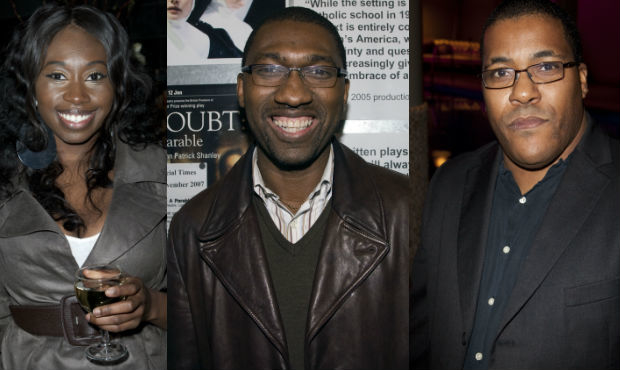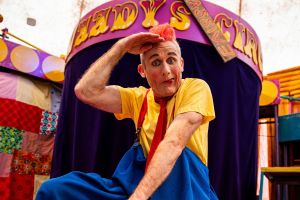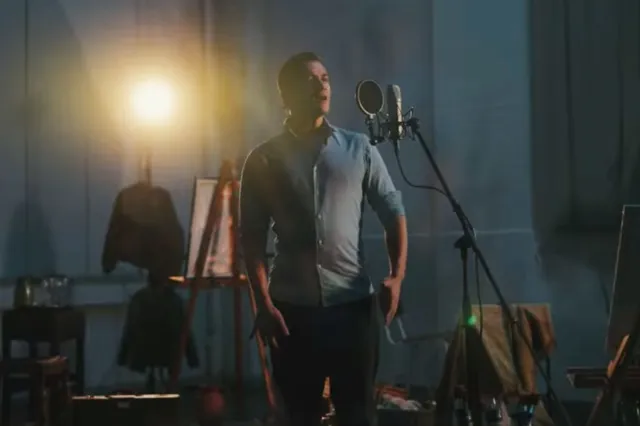Matt Trueman: has diversity in new writing stalled?
Following Lenny Henry’s Radio 4 series ”Raising the Bar”, Matt Trueman asks where are the next generation of black British playwrights

© Dan Wooller
Where are the next generation of black British playwrights? Lenny Henry‘s excellent Radio 4 series Raising the Bar, a run through the history of black drama in this country, ended with that question hanging open. Truth be told, the answer isn’t pretty. Despite all the talk of diversity in theatre, black British new writing has at best stalled, perhaps even gone backwards, in the last ten years.
Rewind a decade and, as Henry laid out, there was a real optimism. Kwame Kwei Armah‘s play Elmina’s Kitchen had transferred to the Garrick – the first time a living black writer had made the West End. Roy Williams and debbie tucker green were on main stages at the National and Royal Court – both deemed great new hopes. Levi David Addai, Bola Agbaje and Oladipo Agboluaje were amongst those beginning to emerge. There was talk of a "cultural renaissance" for black writers; a sense that their work was making inroads into the mainstream. Credit often goes to New Labour’s insistence on predicating funding on diversity statistics.
Since then, Kwei Armah, Williams and tucker green have remained prominent (Kwei Armah as an artistic director more than a playwright), but they also remain outliers. Agbaje won an Olivier for Gone Too Far!, Addai and Agboluaje received nominations for Oxford Street and Iya-Ile respectively. And yet, between them, they’ve had one new play – Agbaje’s Belong – staged at a major London theatre in the past five years.
Who are their successors? Rachel De-lahay, certainly, an Evening Standard Award winner with two Royal Court plays to her name. Arinze Kene, maybe; performance poet Inua Ellams; actor-writer Nathaniel Martello-White, whose second play opens at the Royal Court next year? Beyond them, I can’t think of anyone produced more than once at a major London theatre. Why haven’t we seen second plays from Janice Okoh, Cush Jumbo or Michaela Coel, to name but a few? (Incidentally, it’s worth noting how many of these writers – Kene, Martello-White, Jumbo and Coel – are actors too, which might give them an ‘in’ denied to others.)
It’s worse when you look at certain individual organisations. Since Kwei Armah’s Statement of Regret in 2007, there’s been a major shortage of new black plays at the National: one apiece from Williams and tucker green, plus three imports, Coel’s Chewing Gum Dreams and two Inua Ellams pieces. That means no new voices developed in-house in a decade. The last time Paines Plough, "the national theatre of new plays," staged a full-length script by a black writer was in 2008: Levi David Addai’s House of Agnes.
Part of the reason is a shift in focus: from black to BAME. Slots need spreading across a range of ethnicities, squeezing opportunities for black British writers. The Royal Court has produced four such writers (one being tucker green) in Sloane Square under Vicky Featherstone – down on the previous three years – but it has increased its international and multicultural focus at the same time. The same is true at Theatre503 and the Bush, where the policy is of stretching new writing. Both have produced three black Brits apiece in the last five years.
The result is a level of marginalisation and, in London, it’s noteworthy that the theatres staging black British writers most regularly – particularly emerging writers – are the Tricycle, Ovalhouse and Stratford East, all of which explicitly aim to cater for ethnically diverse audiences. (It’s worth, at this point, acknowledging the limits of my own critical beat, which tends towards the mainstream rather than the margins and the, deeply problematic, lack of black British theatre critics.) Outside of London, Birmingham Rep excepted, new black plays are beyond rare.
It’s not that theatres are unaware of the issue. Black writers are getting development opportunities. They feature in festivals, multi-authored projects and off-site projects such as RADAR at the Bush, Paines Plough’s Come To Where I’m From and Royal Court local. Yet, ultimately, the measure of mainstream success has to be full runs of full-length work.
It’s not that black work isn’t being staged, but it arrives in other forms: classic black plays, new work from America and elsewhere, canonical plays with all-black casts. While it has increased black-led projects, the push for diversity has many fronts, squeezing the space available for black British writers. People used to complain about seasons with a sole black playwright. Now, despite (perhaps because of) an increase in other black-led productions, it’s entirely possible to find none.
However, it is not enough to see black actors onstage, we need to see black stories as well. On the other hand, there’s a risk that black writers end up confined to a certain set of subjects, stories and characters, rather than being afforded the freedoms afforded to their white counterparts. That, in turn, only exacerbates the issue of marginalisation.
The problem is thrown into sharp relief when one looks at the Alfred Fagon Award, an annual prize for the best play by a black British writer. Entries needn’t have been produced, but, damningly, the majority of those shortlisted haven’t been – either before or after such recognition. It’s too early to judge this year’s lot, none of which have yet been staged, but of the 16 shortlisted in 2014, only three have had full runs, with another due next year. The previous year, it’s two of seven – again, with a third scheduled.
Last year, Eclipse launched a major corrective: Revolution Mix. Over the next three years, Dawn Walton’s company will produce a body of work by ten black British writers. Following an exceptional Arts Council award – a mark of the initiative’s cultural urgency – each has been commissioned to write a script, be it for mid-scale, small-scale, radio or film. These will then tour the nation, aiming to rectify "the lack of Black British culture in mainstream regional theatre." The Tricycle also announced a £450,000 grant to develop BAME talent last week.
These are a vital interventions that will have marked effects over the next few years. The question, however, is whether they can trigger the cultural shift to deliver lasting change. The risk, otherwise, is another cultural renaissance turned false dawn.












